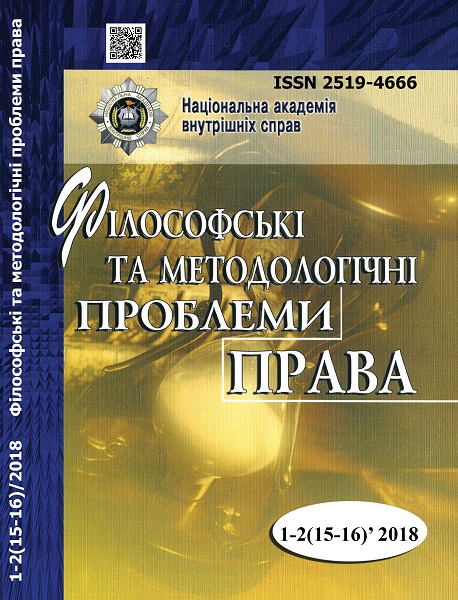Reflection of the Essence and Legal Doctrine of Citizenship
Abstract
The primary purpose of this article is to attempt to extrapolate the essence and legal doctrine of citizenship in the context of reconciling the relationship between human, society and the state. We should preserve the unity of the «human-society-state» complex in its continual development and civilization transformations, as the most comfortable and most desirable for everyone. Particular attention is paid to the primary markers of the definition of the essence of citizenship, the clarification of the legal nature of this legal institution. From ancient Greek city-states, the chief business of citizens is to be engaged in political deliberation by voting, by serving on juries (for example in the USA), by participating in public and military service, and to live a self-sufficient life. In core understanding, citizenship is a contract (membership in a community) between a person and the state, where are foreseen mutual rights, duties, and privileges. During last century concepts of citizenship and identity were very popular especially among sociologists (D. Beland, L. Jamieson, T. Marshall, S. Sassen, Ch. Tilly and B. Turner). In the majority, they concentrated on issues of self-awareness, self-definition, and self-consciousness because those features help to discover self-identity as a fundamental concept of selfhood. During the last 10 years a lot of researchers (R. Bauböck, S. Carrera, G.-R. de Groot, J. Habermas, Ch. Joppke, M. La Torre, P. Mouritsen, L. Orgad, H. Schneider, J. Shaw, J. Weiler etc.) analyzed in their scientific researches a legal concept of citizenship which plays an essential role in constitutional determination of personal identity of a citizen. No need to contradict with a thesis that citizenship is a concept with multiple dimensions. That is why it is impossible to encompass all of its uses and meanings in a single definition. Up to R. Bauböck, there are four interpretations of citizenship directly connected to its implications in the context of modern democracies: – а formal legal status that links individuals to a particular state or another established polity (European Union citizenship for example); a bundle of legal rights and duties associated with this specific legal status (including civil liberties, rights to democratic representation, social rights to education, healthcare, etc.); a set of responsibilities, virtues, and practices that support (are attributive to) democratic self-government; a collective identity that can be shared by all people of the particular nation regardless of class, race, gender, religion, ethnicity, etc. demonstrating their allegiance. In the modern world, there can be found one more meaning of citizenship: it is becoming a ʼcommodityʼ in the global economy market whose nature is increasingly influenced by economic factors.
Downloads
Abstract views: 126 PDF Downloads: 110
Copyright (c) 2019 Philosophical and Methodological Problems of Law

This work is licensed under a Creative Commons Attribution-NonCommercial-NoDerivatives 4.0 International License.
- Authors reserve the right to authorship of their own work and transfer to the magazine the right of the first publication of this work under the terms of the Creative Commons Attribution License, which allows other persons to freely distribute published work with mandatory reference to authors of the original work and the first publication of an article in this magazine.
- Authors have the right to enter into separate additional agreements on non-exclusive dissemination of the work in the form in which it was published in the journal (for example, to post an article in the institution's repository or to publish as part of a monograph), provided that the link to the first publication of the work in this journal is maintained.
- The journal's policy allows and encourages the posting of articles by authors on the Internet (for example, in electronic storehouses of institutions or on personal websites), both before the submission of this manuscript to the editorial office and during its editorial processing, as this contributes to the creation of a productive scientific discussion and positively affects the efficiency and dynamics of citing the published work.




